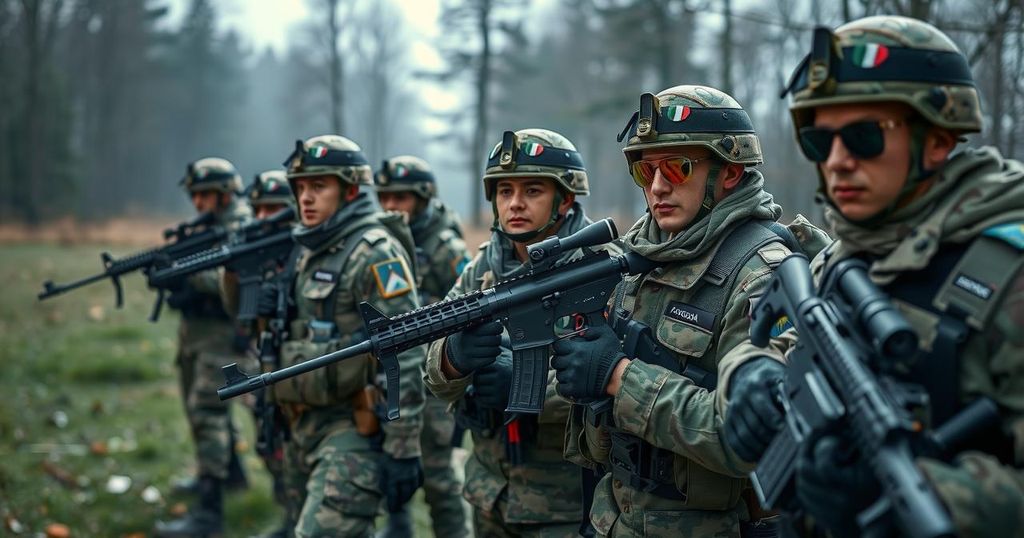North Korean troops have reportedly engaged in combat in Ukraine, a shift from earlier assumptions of their deployment in non-combat roles. Initially estimated at 11,000, troop figures might reach 100,000. While lacking recent combat experience, elite North Korean units trained for high-stakes operations are now being integrated into Russian military efforts, raising concerns in South Korea regarding increased military capabilities amid escalating tensions on the peninsula.
In recent months, North Korean troops have reportedly begun to participate in combat alongside Russian forces in Ukraine, a surprising turn from earlier speculation that their roles would focus solely on non-combat tasks due to their lack of battlefield experience. The initial estimates for troop deployment suggested around 11,000 personnel, but projections have risen significantly, with some sources now estimating as many as 100,000 troops may be sent. Despite the challenges of accurately assessing their effectiveness due to limited reliable communications from Moscow and Pyongyang, analysts recognize that the Korean People’s Army (KPA), while large with a reported 1.28 million soldiers, lacks recent combat experience, contrasting sharply with the Russian military. Intelligence sources from both Ukrainian and South Korean establishments indicate that the soldiers being deployed are likely from the elite 11th Corps, which specializes in infiltrations and sabotage. Even though they face many challenges, including language barriers and acclimatization to Russian tactics, the KPA’s rigorous training in physical endurance might serve as an asset in their deployment. Emerging evidence, including social media videos of North Koreans in Russian military attire, suggests they are receiving additional training tailored to the unique conditions of warfare in Ukraine. The collaboration between Russia and North Korea reflects a strategic partnership aimed at addressing mutual needs: Russia requires manpower to counteract its heavy casualties, while North Korea stands to gain financially and technologically through this engagement. Given the geopolitical tensions, South Korea is increasingly concerned about the military advancement of its northern counterpart. The potential for North Korean forces to gain battlefield experience raises alarms in Seoul, particularly amid recent hostilities between the two nations. South Korean leadership has indicated a readiness to reassess its stance on arms supplies to Ukraine, reflecting the evolving global and regional dynamics arising from this alliance between Russia and North Korea.
The involvement of North Korean troops in Ukraine marks a significant development in the ongoing conflict and highlights the evolving nature of military alliances in the region. Observations indicate North Korea’s active participation reflects Moscow’s urgent need for reinforcements as it faces significant troop losses. With its vast military structure but limited combat experience, North Korea’s role raises questions about the practical implications for battlefield dynamics and broader geopolitical considerations. The situation is set against a backdrop of escalating tensions on the Korean Peninsula, further complicating international relations with concerns about increased hostilities and military capabilities.
In conclusion, the reported deployment of North Korean troops to Ukraine, alongside Russian forces, underscores a strategic alliance grounded in necessity for both nations. While analysts believe that the KPA troops may enhance Russia’s combat capabilities, the implications for North Korea’s military experience and South Korea’s security posture warrant careful observation. The evolving dynamics underscore the significance of international military collaborations and the potential for broader consequences in the geopolitical landscape as both nations face unique challenges.
Original Source: www.bbc.com






